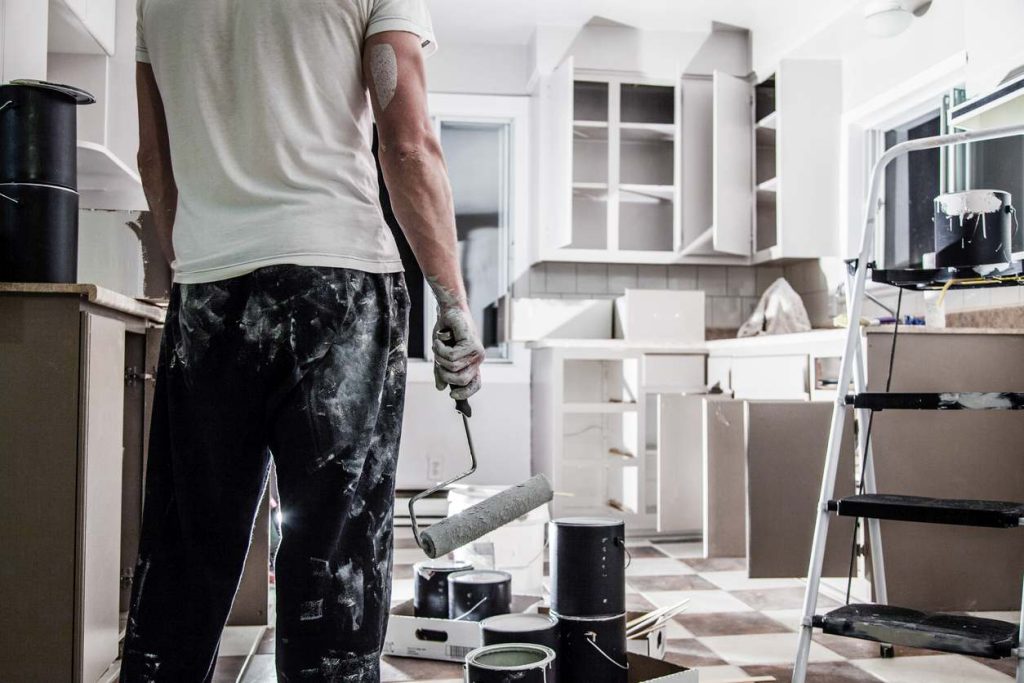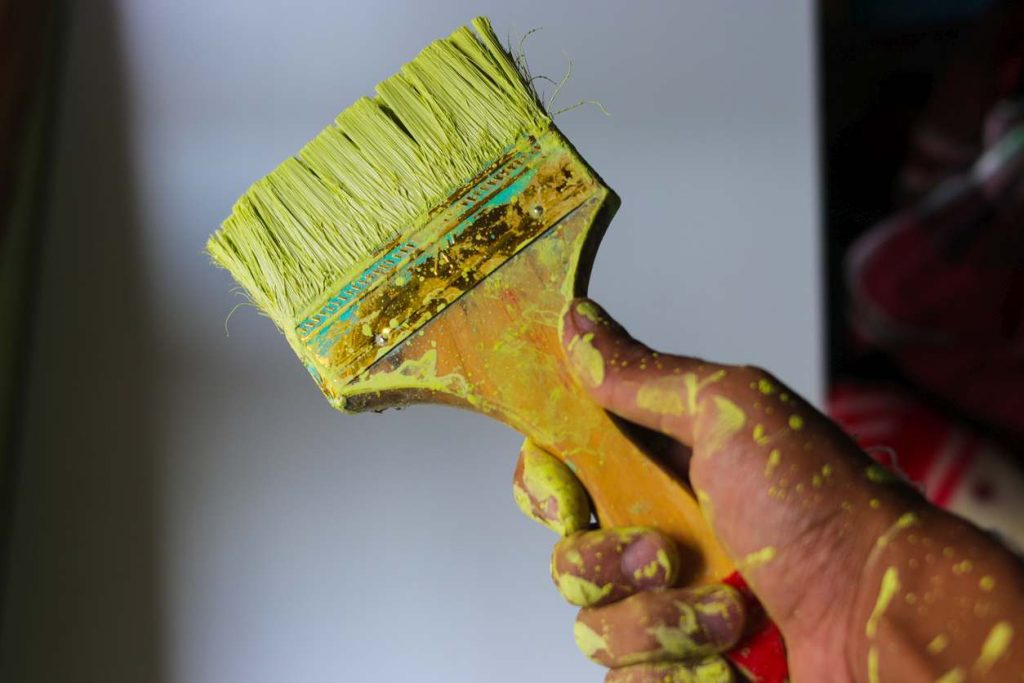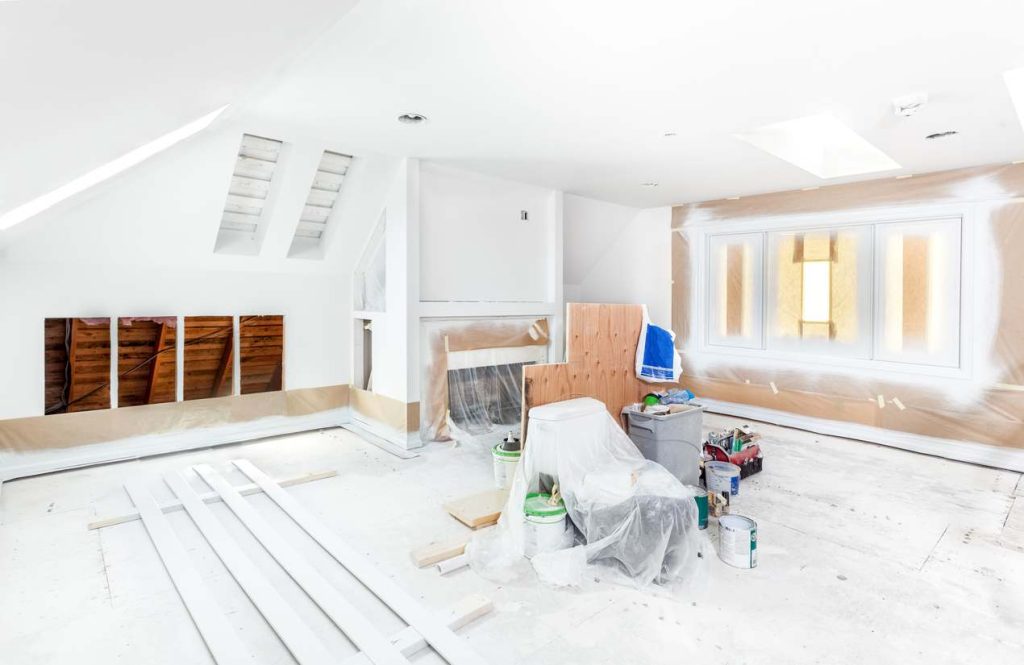Painting a commercial property comes with several challenges. If you plan to keep your business open while the paint job takes place, you must find the right time to get it done to maintain customer traffic and profitability. Another concern is keeping your customers safe while the painting is being done. You must make sure that the commercial painters in the Bay Area that you hire will deliver the best results.
Cleanup should be in your commercial painting contract
It’s a fact that every paint job is messy, even if the painters take steps to avoid them. Drips, spills, splatters, and sanding dust can happen. You will also see various tools and materials that might get strewn everywhere as your painters do their job. Obviously, you cannot just leave your business in shambles.
So, who’s ultimately responsible for cleaning up all the mess after the paint job is completed? Is it you as the business owner? Or is it the painters who created the mess?
The answer is that the painters should clean up after themselves after finishing a paint job. Since they made the mess, it makes logical sense that they should also be responsible for cleaning it up and leaving the property as neat as before they started.
As you review the contract and begin negotiating it, pay attention to any mention of the final cleanup costs. If it’s unclear who’s responsible for cleaning the mess, make a point to your painter to include this in the contract. Of course, painting contractors should always have the cleanup somewhere in the contract, but not all do.

Why should your painter do the cleanup after completing a paint job?
For commercial painting projects, the painters should clean up after themselves before calling it a day. Even if you own the commercial property, you are not involved in the painting process in the first place, so you don’t contribute to any messes due to the paint job each day. Any good commercial painting contractor is aware of the mess they create and thus is responsible for cleaning up after finishing a paint job.
Nevertheless, keep in mind that you, as a commercial property owner, are also accountable for your place’s cleanliness. If you make some preparations inside and outside the building, you help reduce the risks of getting paint on objects you want to protect. Plus, by preparing your commercial space for painting, you are also contributing to the safety of painters.
The benefits of cleaning after finishing a paint job
Cleaning after completing a paint job has a handful of benefits, including:
- Removal of paint residues, sanding dust, and other debris leaving your space clean
- Prevention of mold and mildew growth
- A more aesthetic and appealing place
- A longer-lasting paint finish
Can you skip cleaning up after painting?
In general, skipping the cleanup after completing a paint job is not recommended. But there are some exceptions.
If you are painting a surface that would not be exposed to moisture or humidity, you may not need clean it after painting. However, if the surface is in a high-traffic area or an area constantly exposed to moisture or humidity, it is essential to clean it after painting.
Whether you should clean up after painting depends on various factors, such as the type and condition of the surface, the degree of dirtiness, and the type of paint you are using.
However, in general, it’s recommended to keep the surfaces and the entire space clean after painting. It will make your commercial space look more finished, attractive, and welcoming to your customers and staff. And, of course, keeping your area clean at all times, not just after a paint job, is one of the hallmarks of professionalism and excellence in a business.
How to clean up after finishing a paint job
It’s recommended to do the cleanup immediately after painting. Where do you start, though? Here are some great tips to help you out:
- Cleaning brushes and rollers right after the paint job will help the paint come off more easily. If the brushes and rollers are not cleaned immediately or adequately, the paint will harden, resulting in stiff bristles and roller cover naps. You might not be able to use them again. Adequate cleaning of your paint application tools will ensure they last longer and continue to be usable.
- Clean up your hands and tools with soap and water when using water-based paints (such as latex or acrylic).
- When using oil-based paints, wipe the paints off your hands with a cloth dampened with paint thinner or mineral spirits. Clean the tools with a similar solution.
- Have a clean and damp cloth on hand to wipe up any paint drips on the surfaces while they’re still wet. In the case of oil-based paints, use a cloth dampened with paint thinner or mineral spirits.
- While cleaning, remove any painter’s tape before the paint has the chance to dry completely. This will reduce the likelihood of fresh paint film being lifted off the surface.
- Fold the edges of your drop cloths or plastic sheets toward the center to prevent smearing spills or drips on surrounding surfaces. In the case of plastic sheets, discard them after rolling them up.
- Vacuum the space to get rid of any leftover dust and debris.
By and large, cleaning up is an essential part of the entire painting process. In commercial paint jobs, your painters are tasked to clean up the messes they make. The best painters in the Bay Area always pick up after themselves and make sure that the paints only land where they should.



